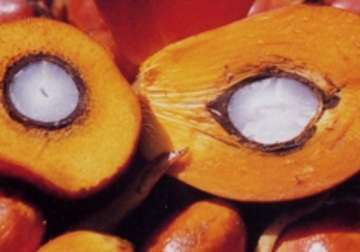Washington, Oct 15: Palm oil, a compound in processed foods, soaps and personal care products, is driving rainforest destruction and massive carbon dioxide emissions, says a new study.
The study, by Yale and Stanford researchers, shows that deforestation for the development of oil palm plantations in Indonesian Borneo is becoming a globally significant source of carbon dioxide emissions.
Plantation expansion is projected to pump more than 558 million metric tonnes of carbon dioxide (CO2) into the atmosphere in 2020, a quantity greater than all of Canada's current fossil fuel emissions, the journal Nature Climate Change reports.
”Despite contentious debate over the types and uses of lands slated for oil palm plantations, the sector has grown rapidly over the past 20 years,” said project leader Lisa Curran, professor of ecological anthropology at Stanford and a senior fellow at the Stanford Woods Institute for the Environment.
Indonesia is the leading producer of palm oil and palm kernel oil, which together account for more than 30 percent of the world's vegetable oil use and can be used for biodiesel, according to a Yale and Stanford statement.
Most of Indonesia's oil palm plantation expansion is occurring on the island of Borneo, also known as Kalimantan, which occupies a land area nearly the size California and Florida combined.
In 2010 alone, land-clearing for oil palm plantations in Kalimantan emitted more than 140 million metric tonnes of CO2, an amount equivalent to annual emissions from 28 million vehicles.
Home to the world's third-largest tropical forest area, Indonesia is also one of the world's largest emitters of greenhouse gasses, due to rapid loss of carbon-rich forests and peatlands.
Since 1990, development of oil palm plantations has cleared about 16,000 square kilometres of Kalimantan's primary and logged forested lands, an area about the size of Hawaii.
This accounts for 60 percent of Kalimantan's total forest cover loss in that time, according to the study's authors.
Latest World News
